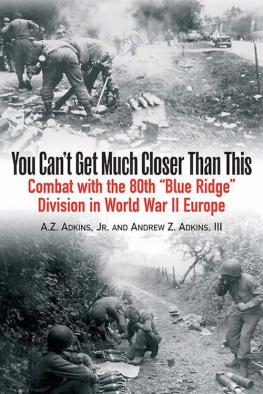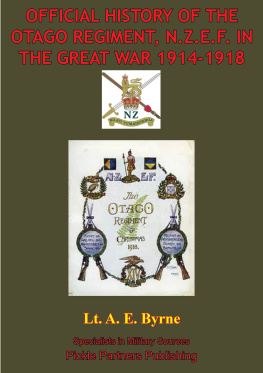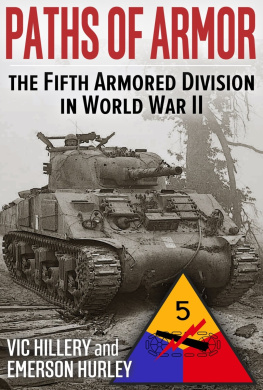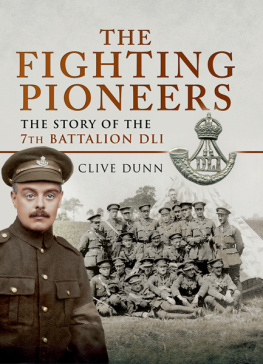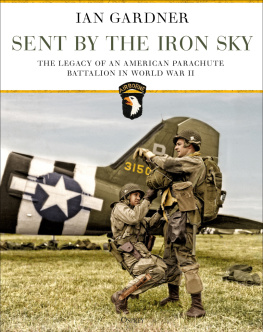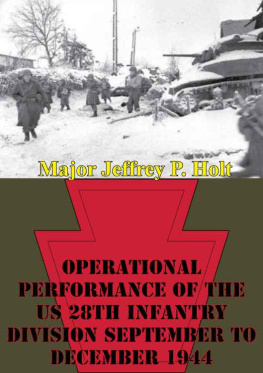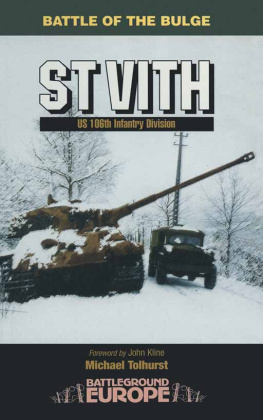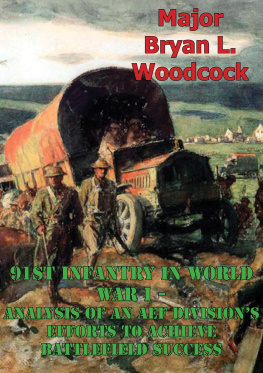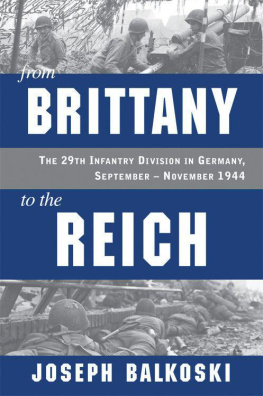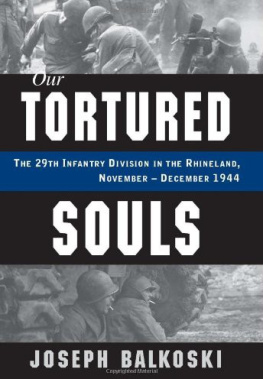Copyright 2005 Andrew Z. Adkins III
Cataloging-in-publication data is available from the Library of Congress and the British Library.
All rights reserved. No part of this book may be reproduced or transmitted in any form or by any means, electronic or mechanical including photocopying, recording or by any information storage and retrieval system, without permission from the Publisher in writing.
Printed and bound in the United States of America. For a complete list of Casemate titles please contact:
This book is gratefully dedicated to all the veterans of World War II, their wives and husbands, and their children.
We are who we are because of what these brave men and women fought and died for.
PREFACE
F or Christmas 1984, my dad gave me a 200-page three-ring binder titled A World War II Diary. I didnt know he had kept a diary of his service, so it came as something of a surprise. Of course, I knew he had served in the infantry during WWII, but little else. And then in 1984 I was holding a day-by-day account of the most tumultuous time of his life.
Like many sons of World War II veterans, I grew up hearing occasional war stories and learned enough to know what a good job our soldiers had done. But like so many other veterans, my father did not talk much about the blood, the death, and what hurt the mostthe loss of his men and his buddies.
I think this diary helped him bring a little more closure in his personal struggle to put the war far behind him. He was proud of his service for his country and proud of his accomplishments. Although he was awarded the Bronze Star, he never considered himself a hero. The heroes were the ones who didnt come home, he once told me. Ive heard that same phrase time and time again from many veterans.
When my parents were first married, my mother placed all his medals in a display case. I remember asking my dad once about them.
Which is your favorite?
Without hesitation he pointed to the Combat Infantry Badge. That one.
His answer surprised me. Why that one and not the Bronze Star?
Because being in the infantry, on the front linesyou cant get much closer than that.
At the time I thought he meant closer to the war. But as Ive grown older, with a family of my own, I know now what he really meant. He was telling me you cant get much closer to your buddies; you cant get much closer to your own fears; and you cant get much closer to God.
There are many people who contributed to helping me complete my dads WWII journal. Without their help and encouragement, this would remain a memoir on my bookshelf forever.
Id like to thank Eric Hammel, my first editor who found me and provided me with much needed patience and guidance with the first draft. I also owe a debt of gratitude to Theodore P. Savas, who continued the editorial process with suggestions and thoughts to help round out the story, and to my publisher, David Farnsworth, of Casemate Publishing.
Jane Yates, archivist at The Citadel, was instrumental in helping me research archives and news events at The Citadel during the Pearl Harbor attack, which allowed me to describe the culture and attitudes of cadets during my dads years at the Citadel.
When I read James Bradleys book Flags of Our Fathers, I felt so many obvious parallels between his relationship with his dad and my relationship with mineI knew I had to finish this project.
My deepest gratitude is due my patient, devoted, and loving wife Becky, who kept encouraging me to finish this labor of love; and to my own children, Evelyn and Jared, who keep my humble and down to earth. I also need to thank my sister, Anne, who provided me with a plethora of facts about our dad I had not previously known.
Finally, I think my dad would like me to thank his parents, A. Z. and Lois, and his sisters Hazel and Lois, who kept him close to their hearts and to the Almighty Creator who watched over him in battle. I know hed also sincerely thank his 80th Infantry Division buddies who fought and died through those tumultuous months treading through the snow, the mud, and the blood, and enduring the most miserable conditions imaginable. And I know he would say, God Bless America!
Andrew Z. Adkins III
Gainesville, Florida
Chapter 1
THE MAKING OF A SOLDIER
December 7, 1941August 5, 1944
D ecember 7, 1941, began just like any other Sunday at The Citadel in Charleston, South Carolina. There was early morning reveille, followed by physical training and a good breakfast. Sunday service followed in the Summerall Chapel. Little did we know this would be the day that shall live in infamy.
As part of our education in world politics, we were required to stay informed of current events around the world. But, like most other 20-year-olds in a military college, my main focus was on education and an eventual commission, not world politics. I was still eighteen months away from graduation.
We knew Europe was again engulfed in war with Hitlers blitzkrieg into Poland in 1939. In the early morning darkness of May 10, 1940, the Germans attacked Holland and Belgium. French and British troops rushed to the rescue but were caught in the retreat of refugees and slowly pushed back. The troops fought valiantly, but in vain; the German war machine continued to advance unperturbed. In England, Hitlers invasion forced the resignation of Prime Minister Neville Chamberlain; Winston Churchill took his place. The Germans skirted the French Maginot Line and slashed into France through Luxembourg and the Ardennes Forest. Hitlers tanks rushed straight to the sea, reached the English Channel on May 21, and cut off the Allied armies in the north. The Germans turned once again, fought their way into the heart of France, and entered Paris on June 14, 1940.
On the other side of the world, the Japanese military was engaged in the seemingly endless war it had started against China in 1931 and was in desperate need of oil and other raw materials. Commercial access was gradually curtailed as the Japanese conquests continued. Eighteen months earlier, President Franklin D. Roosevelt had transferred the U.S. Pacific Fleet to Pearl Harbor as a presumed deterrent to Japanese aggression. In July 1941, the Western powers effectively halted trade with Japan. Desperate, the Japanese schemed to seize the oil and mineral-rich Netherlands East Indies and Southeast Asia; a Pacific war was now virtually inevitable. By late November 1941, with peace negotiations clearly approaching an end, American officials expected a Japanese attack into the Indies, Malaya, and probably the Philippines. No one expected an attack on Hawaii.

